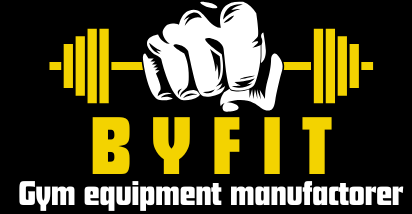Imagine your gym, full of energy, and suddenly, a protein shake slips and splatters across the floor. Problem – it’s sticky, smelly, and could damage your gym flooring. What’s the solution?
Yes, spilled protein shakes can ruin your gym floor if not cleaned properly. Protein shakes can seep into the porous rubber, causing bacteria growth, bad smells, and even degrade the material. Quick, thorough cleaning with the right products is critical.
](https://www.byfitgear.com/wp-content/uploads/2025/03/gym-floor-spilled-protein-shakes-.jpg) Spilled Protein Shakes
Spilled Protein Shakes
It’s not just about the mess; it’s about what that mess can do long-term. Let’s explore how to prevent a simple spill from becoming a costly problem.
How Do You Clean and Disinfect Rubber Gym Flooring?
Your gym is packed, everyone’s pushing their limits, and sweat is flying. Then, a protein shake goes down – a sticky, potentially stinky problem. Is your floor at risk?
Clean rubber gym flooring with a pH-neutral cleaner1 to not hurt the material. Daily, sweep or vacuum, then mop with a diluted neutral cleaner. For deep cleaning, use a steam cleaner2 or a nontoxic, enzyme-based cleaner3 to kill bacteria.
](https://www.byfitgear.com/wp-content/uploads/2025/03/clean-and-disinfect-rubber-gym-flooring.jpg) Clean and Disinfect Rubber Gym Flooring
Clean and Disinfect Rubber Gym Flooring
What’s the Best Daily Cleaning Routine?
Cleaning a rubber gym floor isn’t just about wiping up spills; it’s about making the floor last. Using the right approach keeps the floor in top shape and keeps the gym sanitary.
Here’s a breakdown:
| Step | Action | Frequency | Purpose |
|---|---|---|---|
| Daily | Sweep or Vacuum | Daily | Removes loose dirt and debris |
| Mopping | Use pH-neutral cleaner diluted with water | Weekly | Cleans surface, removes sweat and light stains |
| Deep Clean | Steam clean or enzyme cleaner4 | Monthly | Disinfects, breaks down organic residue |
For everyday cleaning, start by removing any loose dirt or debris with a broom or vacuum. Then, mix a pH-neutral cleaner with water—following the product’s instructions for the correct ratio. Mop the floor, but don’t soak it; too much water can seep into seams and cause problems. For a really deep clean, maybe once a month or more if your gym is super busy, think about using a steam cleaner. Steam is great because it disinfects without needing chemicals.
If you want something even stronger, try an enzyme-based cleaner. These are great for breaking down organic stuff like sweat and protein shake spills, without harming the rubber.
Remember, the right tools and methods will help extend the life of your floor, making your investment worth it, and keep your gym looking and smelling fresh.
Can You Use Bleach on Rubber Gym Flooring?
Picture this: someone spills a colorful, sugary drink on your gym floor. Your first thought might be bleach5, the go-to for tough stains. But will it harm your rubber flooring?
No, never use bleach on rubber flooring. Bleach’s harsh chemicals can weaken rubber’s elasticity, fade its color, and make it wear out faster. Over time, the floor could become brittle and crack. Instead, use a mild detergent6 or a cleaner made for rubber floors.
](https://www.byfitgear.com/wp-content/uploads/2025/03/bleach-on-rubber-gym-flooring.jpg) Bleach on Rubber Gym Flooring
Bleach on Rubber Gym Flooring
Why is Bleach Harmful to Rubber?
Using bleach on rubber gym flooring might seem like a quick fix, but it’s a bad idea long-term. Let’s break down why bleach is harmful and what you should use instead.
| Aspect | Effect of Bleach | Recommended Alternative |
|---|---|---|
| Material Impact | Degrades rubber, causing brittleness and cracking | pH-neutral cleaner, specially formulated cleaner |
| Appearance | Causes discoloration and fading | Mild detergent, color-safe cleaner |
| Safety | Can create harmful fumes when mixed | Enzyme-based cleaner, steam cleaning |
| Longevity | Reduces the lifespan of the flooring | Regular maintenance with appropriate cleaners |
Bleach contains strong oxidizing agents that break down the chemical bonds in rubber. This makes the floor lose its flexibility, leading to cracks and a worn-out look. Plus, bleach can strip the color from your floor, leaving it looking old.
Instead of bleach, use products that clean without damage. A pH-neutral cleaner is gentle yet effective, perfect for regular cleaning. If you need to tackle tougher stains or want to disinfect, an enzyme-based cleaner7 is a good pick. These cleaners break down organic matter without harming the rubber. Always follow the product’s instructions, and remember, consistent care is crucial to keeping your floor in good condition.
🚀 Want a gym floor that lasts longer and stays clean effortlessly? Choose BYFIT rubber flooring—designed for easy maintenance, spill resistance, and long-term durability. Contact me:[email protected]
What Do You Mop Rubber Gym Floors With?
You’ve seen it: the endless parade of feet, the occasional dropped weight, and yes, the spills. Mopping seems easy, but what should you use to really clean and protect your rubber gym floor?
Mop rubber gym floors with a microfiber mop and a solution of water and pH-neutral cleaner (pH 7-9). Avoid using too much water because it can get into the seams and cause mold. For busy areas, a scrubber machine with soft bristles works well.
What are the Best Mopping Tools and Techniques?
Mopping your rubber gym floor the right way keeps it looking good and lasting longer. It’s not just about getting rid of dirt—it’s about using the right stuff so you don’t damage the floor.
| Tool | Why Use It | How to Use |
|---|---|---|
| Microfiber Mop8 | Picks up more dirt, gentle on the floor | Damp mop, not wet |
| pH-Neutral Cleaner | Cleans without harming rubber | Dilute with water as directed |
| Scrubber Machine9 | Efficient for large or high-traffic areas | Use soft bristles, avoid over-wetting |
Start with a microfiber mop. Microfiber is great because it grabs more dirt and grime than regular mops, and it’s gentle on the rubber. When you mix your cleaning solution, use a pH-neutral cleaner. This means it’s not too acidic or too alkaline, so it cleans without wearing down the rubber.
Dilute the cleaner with water according to the instructions on the label. Remember, less is more—too much water can seep under the flooring and cause trouble, like mold or making the adhesive come loose. If your gym is big or gets a lot of foot traffic, a scrubber machine with soft bristles might be a good investment. It can clean large areas fast, but make sure not to soak the floor.
How Do You Maintain Rubber Gym Flooring?
You step into your gym and see the potential for a great workout space. But keeping that space in top condition takes more than just setting up equipment. How do you make sure your rubber flooring lasts?
Regular care is key to making rubber gym flooring10 last. Sweep or vacuum daily to get rid of dirt. Weekly, mop with a pH-neutral cleaner. Monthly, deep clean with a steam cleaner to kill germs. Once a year, check for damage and use a rubber conditioner11 to keep it from drying out.
What’s the Ideal Long-Term Maintenance Schedule?
Maintaining rubber gym flooring is about creating a routine. It’s not just about cleaning; it’s about taking steps to protect your investment over time.
| Frequency | Task | Why It’s Important |
|---|---|---|
| Daily | Sweep or Vacuum | Removes dirt and debris, prevents scratches |
| Weekly | Mop with pH-Neutral | Cleans surface, removes sweat, prevents buildup |
| Monthly | Deep Clean (Steam) | Kills bacteria and deep cleans without chemicals |
| Annually | Inspect and Condition | Checks for damage, keeps rubber from drying and cracking |
Start with daily sweeping or vacuuming. This simple step removes dirt and small stones that can scratch the floor. Weekly, use a mop with a pH-neutral cleaner mixed with water. This takes care of sweat and other residues, keeping the floor clean without harsh chemicals.
Once a month, it’s time for a deep clean. A steam cleaner is great for this because it kills bacteria without any chemicals, reaching deep into the pores of the rubber. Finally, once a year, take a close look at your flooring. Check for any signs of wear or damage. Applying a rubber conditioner can help keep the material flexible and prevent cracks, extending the life of your floor.
What Is One Thing That You Should Avoid Using When Cleaning Rubber Floors?
Your gym floor sees a lot—sweat, dropped weights, and maybe the occasional spilled smoothie. But there’s one big mistake many people make when cleaning. What should you absolutely avoid?
Avoid solvent-based cleaners, acidic solutions, or oil-based products. These chemicals can break down rubber, making it sticky, brittle, and discolored. Also, don’t use too much water because it can weaken the glue under the tiles.
](https://www.byfitgear.com/wp-content/uploads/2025/03/Cleaning-Gym-Flooring-Properly.jpeg) Cleaning Rubber Floors
Cleaning Rubber Floors
What Cleaning Agents are Harmful to Rubber?
Knowing what not to use on your rubber gym floor is just as important as knowing what to use. Some cleaning products can do serious damage, shortening the life of your floor and making it unsafe.
| Harmful Agent | Why Avoid It | Safer Alternative |
|---|---|---|
| Solvent-Based Cleaners12 | Break down rubber, making it sticky and weak | pH-neutral cleaner |
| Acidic Solutions13 | Cause discoloration, degrade rubber | Mild detergent and water |
| Oil-Based Products14 | Leave a slippery residue, can damage rubber over time | Enzyme-based cleaner (for organic spills) |
| Excessive Water | Weakens adhesive, can lead to mold and mildew under tiles | Damp mopping with minimal water, ensure quick drying |
Solvent-based cleaners are a big no-no. They can dissolve the rubber, making it soft and sticky, and eventually causing it to break down. Acidic solutions, like vinegar or lemon juice, might seem like good natural cleaners, but they can also harm the rubber, causing it to discolor and degrade.
Oil-based products can leave a slick residue that’s not only dangerous for anyone working out but can also damage the rubber over time. And while water is necessary for cleaning, too much of it can be a problem. Excessive water can seep under the tiles, weakening the adhesive and creating a breeding ground for mold and mildew.
Conclusion
Keeping your gym floor in good shape is all about quick action and using the right cleaning methods. By sticking to a simple maintenance routine and avoiding harsh chemicals, you can make sure your gym stays clean, safe, and durable.
-
Understanding pH-neutral cleaners can help you maintain your gym flooring effectively and avoid damage. ↩
-
Learn how steam cleaning can enhance your gym’s hygiene and prolong the life of your flooring. ↩
-
Explore the advantages of enzyme-based cleaners for a safer and more effective cleaning solution for your gym. ↩
-
Explore how enzyme cleaners can effectively break down organic stains, ensuring a thorough clean for your gym floor. ↩
-
Understanding the effects of bleach on rubber can help you maintain your gym floor’s integrity and longevity. ↩
-
Find out which mild detergents are safe and effective for cleaning rubber surfaces without harming them. ↩
-
Learn about enzyme-based cleaners and their effectiveness in cleaning rubber without causing harm, ensuring longevity. ↩
-
Discover why microfiber mops are the best choice for cleaning rubber gym floors and how they outperform traditional mops. ↩
-
Explore the efficiency of scrubber machines in maintaining large gym spaces and their advantages over manual cleaning methods. ↩
-
Explore this link to discover expert tips and techniques for keeping your rubber gym flooring in top condition for years to come. ↩
-
Find out how using a rubber conditioner can extend the life of your gym flooring and prevent cracks and damage. ↩
-
Understanding the impact of solvent-based cleaners can help you protect your rubber floors and extend their lifespan. ↩
-
Learn why acidic solutions can damage rubber flooring and discover safer cleaning alternatives. ↩
-
Explore the dangers of oil-based products on rubber floors to ensure a safe and effective cleaning routine. ↩

](https://www.byfitgear.com/wp-content/uploads/2025/03/9ee861b5-59cb-4162-b5a3-8209c9197c9f.jpeg)

